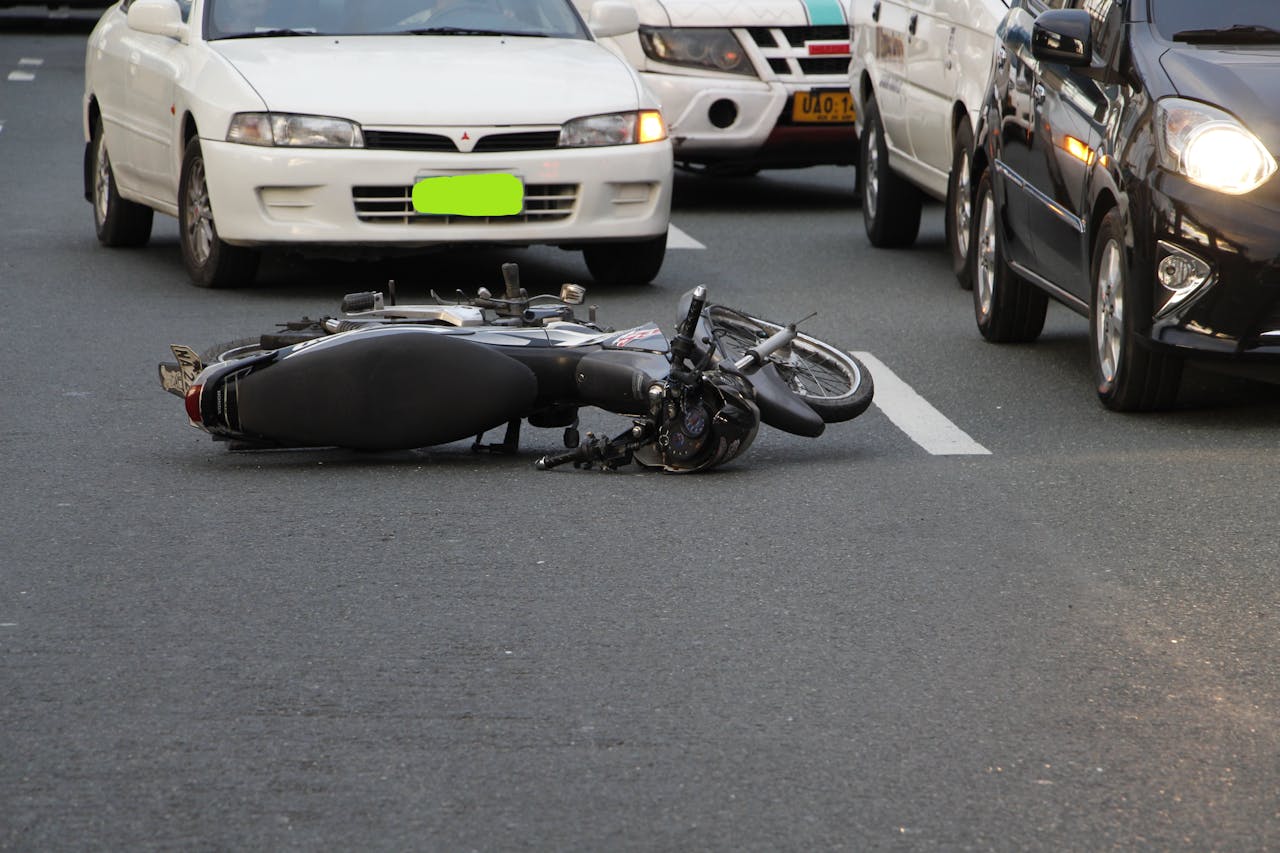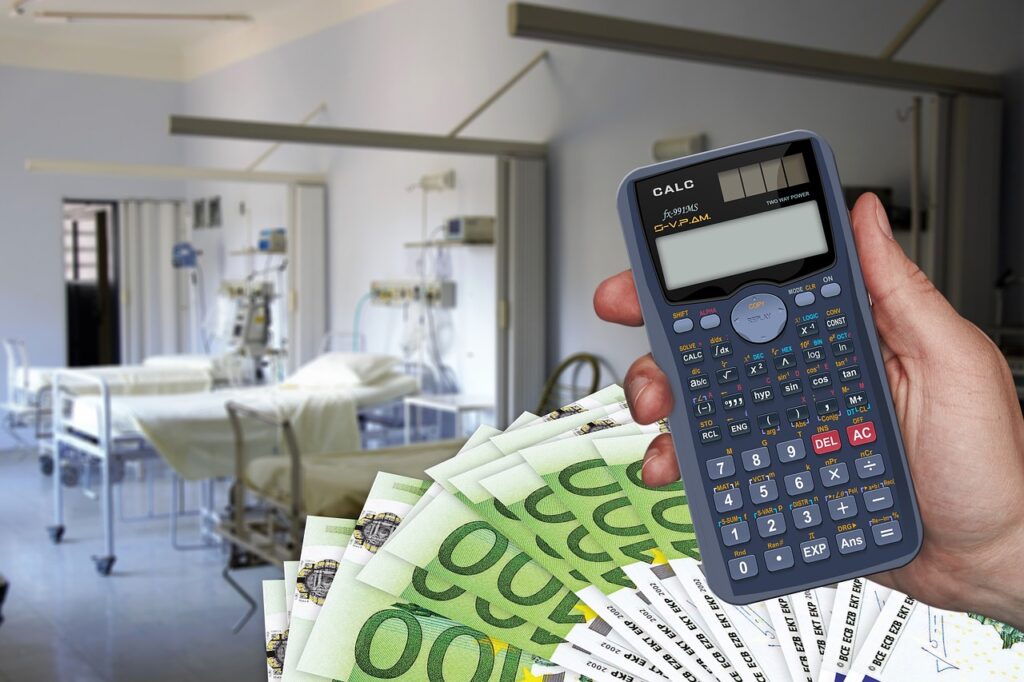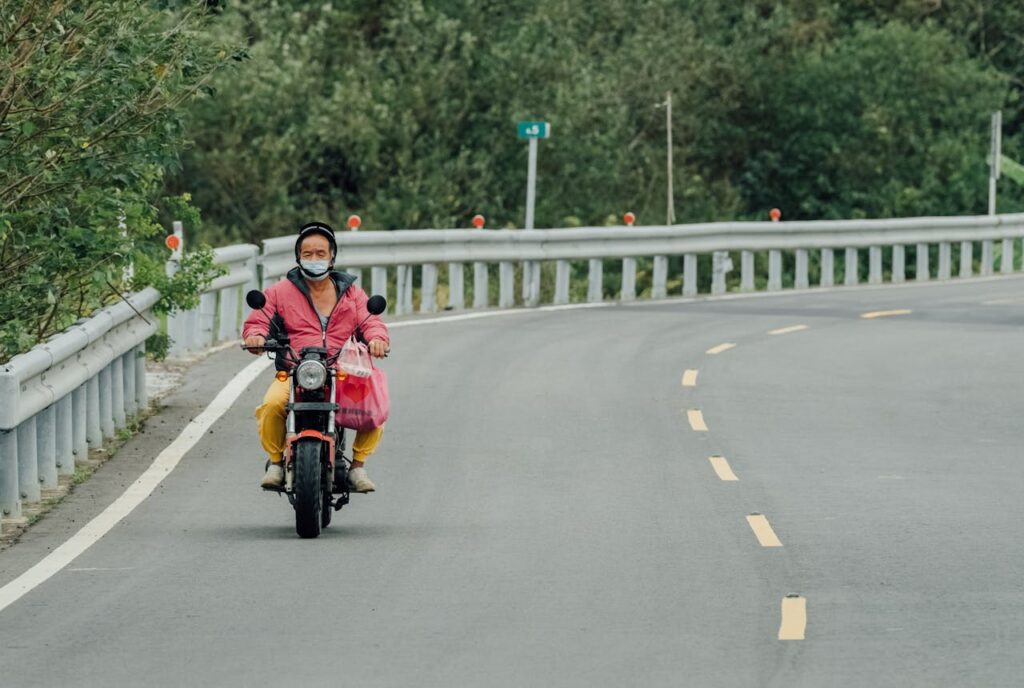Now Reading: The Ultimate Guide to Dealing with the Aftermath of a Motorcycle Accident
-
01
The Ultimate Guide to Dealing with the Aftermath of a Motorcycle Accident

The Ultimate Guide to Dealing with the Aftermath of a Motorcycle Accident
Riding a motorcycle is an exhilarating experience, but unfortunately it also comes with its fair share of risks. One of the biggest fears for every motorcycle rider is being involved in an accident. And while we hope that it never happens to us, the reality is that accidents can and do occur.
If you have been in a motorcycle accident, you know firsthand how terrifying and traumatic it can be. In addition to any physical injuries, there are also emotional and financial consequences to deal with. But fear not – this ultimate guide is here to help you navigate the aftermath of a motorcycle accident.
We will cover everything from what steps to take immediately after the accident, to dealing with insurance companies, and even tips for getting back on your bike after the incident. Without further ado, let’s get started.
Stay Calm
The first and most important step to dealing with the aftermath of a motorcycle accident is to stay calm. It can be extremely overwhelming and emotional, but it’s essential to try and keep a level head. Take deep breaths, assess the situation, and remind yourself that panicking will not help anyone. Staying calm will also allow you to make rational decisions and communicate effectively with others involved in the accident.
If needed, take a moment to compose yourself before proceeding with any further steps. Remember, staying calm is crucial for your own well-being as well as for those around you during this difficult time. So take a few moments, gather your thoughts, and approach the situation with a clear mind. It will help you in the long run.
Check for Injuries
After staying calm, your next step should be checking yourself and others involved in the accident for any injuries. If anyone is seriously injured, call for medical assistance immediately. Even if you feel fine at first, it’s important to get checked out by a doctor as soon as possible. Some injuries may not show symptoms right away but could worsen over time if left untreated.
In case of any serious injuries, do not attempt to move the person unless absolutely necessary and wait for professional medical help. Moving the person can cause more harm and worsen their injuries. Remember, your health and well-being are the top priority, so don’t hesitate to seek medical attention if needed. It’s always better to be safe than sorry.
Move to a Safe Area
If possible, it’s essential to move yourself and your motorcycle out of harm’s way after an accident. If you’re unable to do so due to injuries or damage to your bike, wait for emergency services or bystanders to assist you. Moving away from traffic can prevent further accidents from occurring and also allow you to assess the damage to your motorcycle more clearly.
Once you have moved to a safe area, try to remain calm and avoid any confrontations with other parties involved. This will help keep the situation under control and prevent any escalation of tensions. Also, be sure to take note of your surroundings and gather any evidence that may be useful for insurance purposes later on.
Seek Medical Attention
Seeking medical attention after a motorcycle accident is crucial, even if you feel fine at first. Some injuries may not be immediately noticeable but could worsen over time if left untreated. Furthermore, having all injuries documented by a medical professional can also strengthen your case in case of any legal action.
If you are unable to seek medical attention right away due to the severity of your injuries, make sure to do so as soon as possible. Also, keep track of any medical expenses incurred and save all documentation related to your treatment. It will help you in the long run when dealing with insurance companies or potential legal proceedings.
Take Photos of the Accident Scene
Before anything is moved or cleared away, it’s important to take photos of the accident scene. These photos can serve as valuable evidence later on and can help clarify any discrepancies or conflicting stories from other parties involved. Make sure to capture multiple angles, including damage to your motorcycle and any visible injuries.
In addition to taking photos of the scene, also take pictures of any traffic signs or signals that may have played a role in the accident. These details can also be crucial in determining fault and liability. Remember to always prioritize your safety, but if you are able to safely take photos, it can greatly benefit you in the long run.
File a Report with the Police
Even if the accident seems minor, it’s important to file a report with the police. This document will serve as an official record of the accident and can be used as evidence in any legal proceedings or insurance claims. Make sure to provide accurate and detailed information to the police officer, including your personal account of what happened.
If you are unable to file a report at the scene due to injuries, make sure to do so as soon as possible afterwards. The more time that passes, the less reliable your memory may become. It’s always better to have an official record of the accident from the start, rather than trying to recall details later on. This will help protect your rights and ensure that you receive fair compensation for any damages.
Consult with a Personal Injury Lawyer
If you have been involved in a motorcycle accident, it’s important to consult with a personal injury lawyer. For instance, you can find the best California Motorcycle accident lawyer to help you with your case. They can provide expert advice and guidance throughout the entire process, from dealing with insurance companies to potential legal proceedings.
A personal injury lawyer will also be able to assess the damages and losses caused by the accident and help you seek fair compensation. They will handle all communication and negotiations with insurance companies on your behalf, allowing you to focus on your recovery. It’s crucial to choose an experienced lawyer who specializes in motorcycle accidents for the best possible outcome.
Contact Your Insurance Company
After seeking medical attention and consulting with a lawyer, your next step should be contacting your insurance company. It’s important to do this as soon as possible, as many policies have specific time limits for reporting accidents.
Make sure to provide accurate and detailed information about the accident, including any photos or documentation you have. Your insurance company may also require a copy of the police report. This police report can also serve as evidence if there are any disputes with your insurance company. Ensure to keep all communication with your insurance company in writing for record-keeping purposes.
Keep Track of All Medical Expenses
Dealing with medical expenses after a motorcycle accident can be overwhelming. To ensure that you are fully compensated for any medical costs incurred, it’s important to keep track of all expenses related to your injuries. This includes hospital bills, medication, physical therapy, and any other treatments or appointments.
Save all receipts and documentation and make sure to provide them to your insurance company or lawyer when necessary. Keeping a detailed record of your medical expenses will also help you accurately calculate the total cost of your injuries and determine what compensation you may be entitled to. For instance, it could include any future medical expenses as well.
Collect Witness Information
If there were any witnesses to the accident, make sure to collect their contact information. Their statements can serve as valuable evidence and help determine fault in case of legal proceedings. It’s important to get their full name, phone number, and email address if possible.
You may also want to ask them to write down what they saw or have them record a voice memo on your phone. This will ensure that their memory is preserved accurately. Witnesses can play a crucial role in providing an unbiased account of what happened and can greatly benefit your case. Remember to be polite and respectful when approaching witnesses for their information.
Do Not Admit Fault
After an accident, it’s important to remember that you should not admit fault or apologize to anyone involved. Even if you believe you may be partially responsible, do not make any statements until you have consulted with a lawyer. Admitting fault can greatly impact your case and potentially limit the amount of compensation you are entitled to.
Stick to factual information when communicating with others about the accident and avoid discussing details on social media or with anyone other than your lawyer. Remember that any admissions of guilt or responsibility could be used against you, so it’s best to refrain from making any statements until advised by a legal professional.
Take Care of Your Mental Health
Dealing with the aftermath of a motorcycle accident can take a toll on your mental health. It’s important to prioritize and take care of yourself during this time. Seek therapy or support groups if needed, as they can provide you with a safe space to process your emotions.
Don’t be afraid to talk about your feelings with loved ones or seek professional help if necessary. Mental health is just as important as physical health, especially when dealing with a traumatic experience like an accident. Taking care of yourself will also help you better cope with any challenges that may arise during the recovery process.
Keep a Record of Lost Income and Work Hours
If your injuries from the motorcycle accident have caused you to miss work or lose income, make sure to keep a record of this. This can include any missed hours, reduced pay, or even lost job opportunities due to your injuries. This documentation can be used as evidence when seeking compensation for damages and losses caused by the accident.
It’s important to keep track of all financial impacts of the accident, including any future lost income or career advancements that may have been affected. Your personal injury lawyer can also assist you in accurately calculating these losses and determining what compensation you may be entitled to.
Consider Therapy or Support Groups
Dealing with the aftermath of a motorcycle accident can be overwhelming and emotionally challenging. Don’t hesitate to seek therapy or join support groups if you feel like you need extra support during this time. These resources can provide a safe and non-judgmental space for you to process your emotions and connect with others who may have had similar experiences.
Therapy or support groups can also help you better cope with any challenges that may arise during the recovery process. For instance, they will help you develop healthy coping mechanisms and provide you with a support system to lean on during difficult times. Remember that your mental health is just as important as your physical health after an accident.
Get Back on Your Bike with Caution
After an accident, it’s natural to feel hesitant about getting back on your motorcycle. Take your time and don’t rush into riding again until you feel fully ready. Consult with your doctor and make sure your injuries have healed, and you have received clearance to ride.
When getting back on your bike, start slow and ease yourself back into riding. Ride in a familiar area at first and gradually increase the distance or difficulty of your rides as you regain confidence. Remember to always follow safety protocols and wear protective gear when riding. With caution and patience, you can get back on your bike and continue enjoying the freedom of riding.
Being involved in a motorcycle accident can be a traumatic and overwhelming experience. It’s important to remember to stay calm, prioritize your safety and well-being, seek medical attention, and consult with professionals such as a lawyer or therapist for support. Keeping records of the accident, seeking fair compensation for damages and losses, and taking care of your physical and mental health are all crucial steps in recovering from a motorcycle accident. With caution and patience, you can get back on your bike and continue enjoying the freedom of riding while also learning from the experience to prevent future accidents. Stay safe on the road.












